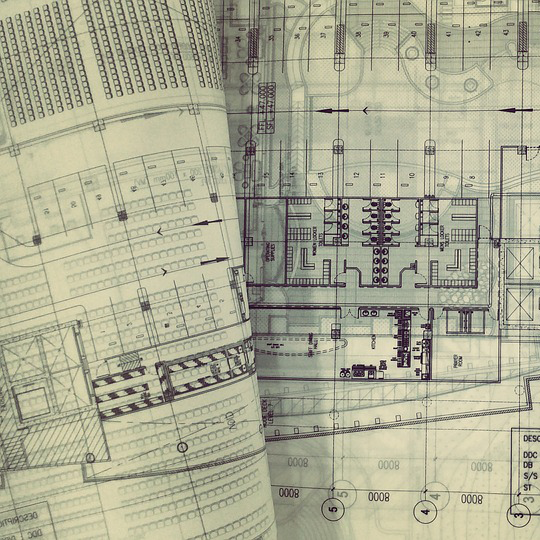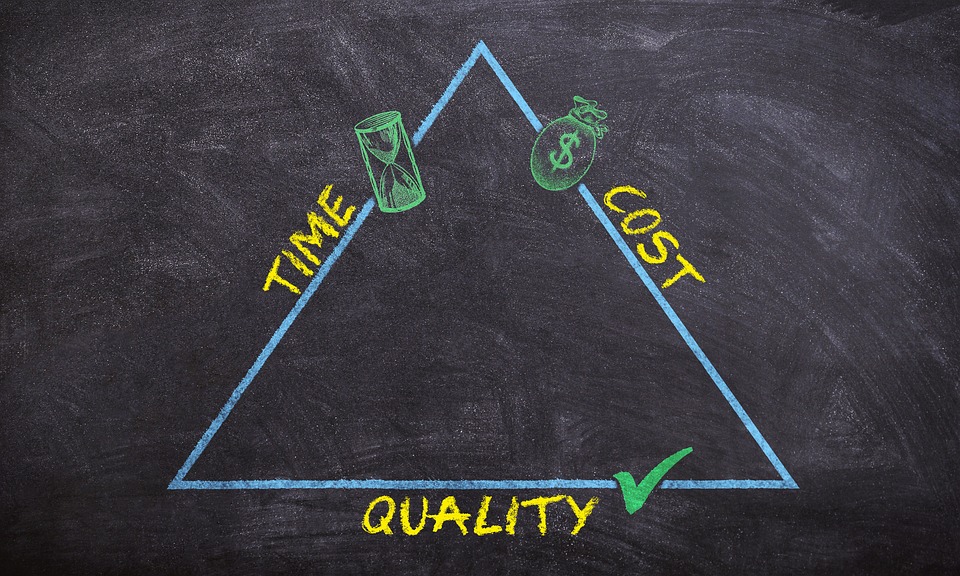During periods of inflation and interest rates variability, many clients ask if this will impact their appraisals. This article attempts to shed some light on these issues.
A little background first
Inflation rates and interest rates are correlated. Rising inflation is typically caused by imbalances in supply and demand. Simply put, when demand of a good or service exceeds supply, prices go up. Central banks then increase interest rates to cool demand, which in time will cool inflation. Price increases slow, and then interest rates fall.
During 2021 and into 2022, inflation has been increasing significantly, mainly due to supply chain constrains causing supply of many good and services to fall significantly below demand levels. In response, in early 2022 central banks began increasing interest rates. Inflation will eventually begin to slow, but at time of writing (August 2022) it is unknown when and at what level these cycles will peak and reverse.
Do changing inflation rates and changing interest rates affect appraisals of tangible assets?
Generally speaking, yes, but in different ways depending on the type of appraisal (cost estimate or value estimate). Note: For more insight on the difference between cost and value, please see Suncorp Valuations recent blog on that topic.
The Impact on Insurance Appraisals
A “Cost Estimate Report” (eg. an “insurance appraisal”) is an estimate of the cost to replace a particular asset to ensure adequate insurance coverage is in place. Changing interest rates have little effect on these types of appraisals, however inflation has a significant impact. During times of rapidly changing material and/or labour costs the appraiser must pay close attention to cost trends in a myriad of categories, sub-markets, and regions. Often these trends show significant volatility and little correlation. Expert data acquisition and analysis is essential. It is important for users of Insurance Appraisal services to communicate frequently with their Suncorp Valuations consultant to ensure costs are updated on a regular basis to reduce the risk of an insurance coverage shortfall in the event of a loss.
The Impact on Value Appraisals
A “Value Appraisal” is an estimate of what a particular asset may sell or rent for. These types of appraisals are used for many purposes such as secured lending, buyer/seller due diligence, property division, etc. Inflation and cost has some impact, however interest rates have a significant impact on value estimates, for two main reasons.
Firstly, most tangible assets require some type of financing, such as a mortgage or secured loan, to facilitate the purchase. When interest rates increase, this decreases the relative purchasing power thereby reducing demand, and value. When interest rates go down, the reverse happens and values of tangible assets often increase.
And secondly, when interest rates increase the return on low risk investments (such as GIC’s, t-bills, bonds, etc.), also increase. These low risk investments compete with higher risk investments (such as income producing tangible assets and real property) for investor’s funds. Investors (buyers) then require a higher return on the purchase of tangible assets, and as a result values tend to fall. When interest rates fall, the reverse happens and values often go up.
There are many factors (such as tight supply) that impact the value of a tangible asset, and some of these factors change quite frequently. It is important for users of valuation services to communicate frequently with their Suncorp Valuations consultant to ensure their tangible asset value estimates are updated on a regular basis. In this way, our clients have the most up to date and accurate information with which to make informed decisions.

What is a “desktop” appraisal?
A “desktop” appraisal is a qualified appraisal performed without a physical inspection of the subject property. Information on the property may be provided by the client to an appraiser, obtained by an appraiser from a previous appraisal or public sources, or a combination of both.
What to know about a “desktop” appraisal?
Regardless of the source of information, the reporting is going to have a clear qualifying statement that no physical inspection has occurred at the effective date and the appraiser has relied on information believed to be true. The appraiser will look to verify any information from applicable sources regarding the property however; reliance on third party information will certainly occur and be clearly stated in the report in the form of an Extraordinary Assumption, Hypothetical Condition, and an Extraordinary Limiting Condition.
What considerations should be examined to validate the applicability of a “desktop” appraisal?
One of the first considerations prior to arranging a “desktop” appraisal would be the use of the report. While you may be the client of record, clients often have third parties that would rely on the reporting for a variety of uses such as asset based financing or insurance placement. It is imperative that you confirm with all additional users to ensure a qualified report without inspection would be sufficient for the intended use.

The second consideration one needs to make is to ensure that the required information can be gathered completely and accurately and provided to the appraiser. When completing a “desktop” appraisal an appraiser will have a significantly larger data request regarding the specified property, as the appraiser is not physically inspecting the assets themselves. The client would be responsible to be the “eyes” of the appraiser meaning someone on site will need to gather information such as plans, specifications, photographs, etc. of the subject property.
When does a “desktop” appraisal fit?
The often misnomer around “desktop” appraisals is that it is a cheaper appraisal option. If the reason you are considering a “desktop” appraisal were to save cost, we would recommend reconsidering. A “desktop” appraisal may save the time associated with the inspection process; however, that time is typically entirely offset in coordinating data collection and reviewing and verifying the information to complete the reporting. Often the professional fees associated with a “desktop” appraisal can be identical to a full appraisal unless very good asset records and property information already exists. Where assets are remote in nature, the “desktop” option does assist with cost savings involved with travel and disbursements.
Some areas where a “desktop” appraisal may be a good fit would be as follows:
- Assets that have been previously (and recently) inspected/appraised and an update is required;
- Assets whose location are significantly remote or significantly spread out, however the assets are similar in nature or scope;
- Assets where access simply cannot be provided due to restrictions for entry;
- Farmland during the winter when the subject property (eg. the land) is buried in snow and thus is hidden from sight.
Closing
A “desktop” appraisal is a useful tool an appraiser has to complete a appraisal for a client with unique circumstances around access to their assets. If you are considering if a “desktop” appraisal will work for your current appraisal needs, you should consider all users of the reporting (you don’t want to go back after the appraisal because your user will not accept the reporting), as well as your ability to provide the appraiser all relevant information on the property. When the circumstances as well as the use aligns, a “desktop” appraisal may be the right appraisal fit for you or your client’s needs.
To inquire about your valuation needs, Contact Us today!

There is an old saying in business about how a service can be fast, good, or cheap. According to the saying, a business can be two of those things, but not all three.
At Suncorp, our primary focus is on quality. Delivering a quality product means having professional staff who are trained and qualified; ensuring our reports meet or exceed industry standards; and having layers of internal quality control to ensure error free reports that are credible and reliable.
The journey to a quality product always starts with an accurate proposal. This ensures that there are no misunderstandings between Suncorp and the client, and that we provide the precise service that is needed.
The first step in the process, is for us to simply listen. Effective listening involves hearing what the client wants and needs. This leads to effective communication to explore options; ask questions to increase clarity and understanding; and then agree on the terms of reference for the service to be provided.
The next step is to produce a proposal which documents the agreed terms of reference. There are a number of vital elements for each proposal.
The “client” and “intended users” must be clearly and accurately identified in the proposal to establish the boundaries of the consultant/client relationship, and to maintain confidentiality so that data is not inadvertently disclosed to unauthorized third parties.
It is vital as well to accurately identify the subject property. This sounds simple, but a civic address or an asset list alone is often not accurate or complete. We need to determine at the start precisely what assets are in scope.
It is important to know the intended use of our service, which is what the client needs the report for. Examples of intended uses include for secured lending, insurance coverage, some type of litigation, buyer or seller due diligence, accounting for tax reasons, etc. Once we know the intended use, we can then determine the purpose and premise of the service which will be documented in the proposal as well.
Finally, the proposal must identify any special assumptions or conditions. These can include such things as assuming certain work or repairs are complete, assuming re-zoning, or basing the cost or value opinion as of a date different from our inspection date for example.
The draft proposal is then provided to the client for review. If all terms are in order as agreed, then the proposal is signed, and our work begins. A detailed an accurate proposal ensures that our team knows exactly what needs to be done, how, and by when.
Although Suncorp has highly qualified and experienced staff and quality control procedures in place, let’s be honest, mistakes sometimes do happen. Although this is rare, once we become aware of an issue we do everything in our power to rectify the situation without delay. As an extra measure Suncorp also carries liability insurance to protect both ourselves as well as our clients and intended users. This aspect is another differentiation between Suncorp and our competitors, many of whom either do not carry liability insurance because of the cost, or have very limited coverage because it is cheaper.
There are many examples of why rules matter, and why it is important to always follow industry standards and best practices. Two examples include Foremost Financial Corp. v. Cushman & Wakefield Ltd. (2022 ONSC 1622); and Ryan Mortgage Income Fund Inc. v. Alpine Credits Limited (2016 BCSC 1582). In both these cases, unauthorized third parties sued both the appraisal firm and the appraiser’s client for alleged damages. However in both cases, the courts dismissed the action because neither of the third parties were identified as an Intended User.
 The moral of this story? When you need credible and reliable professional services, always go to a top tier firm that cares about quality. At Suncorp, we care about quality and about doing the job right. Every assignment lifecycle starts with listening and understanding the client’s needs, and then ensuring a complete and accurate proposal is in place. We then follow the “rules” to ensure our reports meet or exceed industry standards, and meet client’s needs.
The moral of this story? When you need credible and reliable professional services, always go to a top tier firm that cares about quality. At Suncorp, we care about quality and about doing the job right. Every assignment lifecycle starts with listening and understanding the client’s needs, and then ensuring a complete and accurate proposal is in place. We then follow the “rules” to ensure our reports meet or exceed industry standards, and meet client’s needs.
To inquire about our quality services, Contact Us today!
Understanding Liability Risks in Market Value Appraisal Assignments, a US perspective as guidance for appraisers and their clients
We are pleased to re-publish this article (with permission) from Peter Christensen of Christensen Law Firm based in Montecito, California. The article provides some good perspective in looking at liability in market value engagements. We really want to encourage our clients to read and understand liability provisions as they engage for appraisal services.
At Suncorp Valuations, we take pride in the quality of our work. All our consultants are thoroughly trained and supervised. All of our reports meet or exceed industry standards, and go through multiple quality control layers prior to release. And we carry significant level of liability insurance for the protection of all parties.
Don’t let these four appraiser liability myths trip you up.
I worry that some myths about appraiser liability will never go away. These myths are repeated to the point that they’re basically accepted as fact. Here, I’ve collected four of the most common myths concerning appraiser liability in an attempt to bust them once and for all.
Myth No. 1: I don’t have personal liability for my appraisals because I organized my firm as a limited liability company.
Truth: While that sounds like a reasonable understanding of the legal protections that come from forming a limited liability business, the statement is incorrect.
Operating a valuation firm as a limited liability company, an S-corporation or a limited liability partnership can be a smart business move. Selecting the right business form depends on individual personal and business circumstances, with each form presenting advantages and disadvantages related to taxation, retirement planning, outside investment and financial liability.
However, forming an LLC, an S-corporation or an LLP doesn’t insulate appraisers from liability for claims about their own alleged professional negligence. The appraiser carries the license; therefore, the appraiser personally is responsible for the work and liable for professional errors. The firm itself also has potential liability, but it’s vicarious through the work of its staff, which is why it’s common to see both the appraiser who performed the appraisal and the appraisal firm named as defendants in professional negligence lawsuits stemming from deficient appraisals.
This hard truth doesn’t mean appraisers should avoid organizing their firms using limited liability business forms. Choosing the right form can offer tax, retirement and other benefits, as previously noted. Additionally, when there are multiple appraisers working in a single firm, a limited liability business form will serve to insulate the appraiser-owner against personal liability for the professional negligence of another appraiser’s work, as well as from other business liabilities.
Myth No. 2: Lenders require appraisers to carry E&O insurance because they routinely seek to hold appraisers responsible for loan losses.
Truth: A few lenders and servicers have experimented with systematically suing appraisers over loan losses, but they failed in their efforts and discovered it’s not a good business plan. The most spectacular failed experiment was backed by Impac Mortgage Holdings, which authorized third-party collectors like Llano Financing Group to sue more than 500 appraisers between 2014 and 2016. The fact is, lenders only account for about 30 percent of claims filed against appraisers. Lenders typically don’t sue appraisers to make up for loan losses; they sue when they believe an appraiser’s negligence was particularly egregious and clearly caused a loss. Therefore, appraisers who perform residential and commercial appraisals for lenders mainly have E&O insurance to protect against claims filed by aggrieved borrowers and property purchasers, who account for 60 to 65 percent of current claims.
Myth No. 3: The only appraisers who get sued are those performing appraisals for mortgage lending
Truth: The origin of this myth most likely correlates with the significant amount of valuation work performed for lending purposes — the more lending work, the greater the liability risk, the thinking goes. However, 20-plus years of appraiser claim records in LIA’s insurance program disproves this myth. Expert witness work, tax work, estate work and arbitration work all produce liability claims against appraisers.
In one case, an appraiser serving as an expert was sued by his client because the client’s win wasn’t financially rewarding enough. The client claimed in a subsequent professional liability lawsuit that the appraiser wasn’t suitably persuasive as a testifying expert.
Appraisers should recognize there is potential liability risk for non-lending work because failing to do so actually increases their risk
Myth No. 4: Liability risk for appraisers is out of control
Truth: Some appraisers see potential liability risk at every turn, but the reality is, lenders and mortgage investors sue appraisers in small numbers — even at the height of the most recent recession and mortgage crisis. For the most part, lenders and investors eat their losses or sue each other. There also are appraisers who believe that valuation work for litigation purposes must be filled with liability risk — a line of thought not unlike those who believe lending work results in copious claims.
For example, appraisers who perform appraisals for condemnation cases may have liability fears rooted in a belief that they will be sued if they serve as an expert witness for a government agency and the property owner whose land is being condemned is unhappy with the valuation. While these lawsuits happen — and appraisers are right to exercise caution and protect themselves — the reality is that these types of claims are not and never have been out of control.
Are some appraisal assignments riskier than others? Certainly. There are three areas that generate an inordinate number of claims (relative to the volume of assignments):
- Appraisals used in offering statements, sales documents or prospectuses for equity investments in the subject property.
- Appraisals used to support federal income tax deductions for conservation and building façade easements.
- The reporting of construction progress by appraisers for purposes of construction loan disbursements.
If you work in any of these three areas, take heed and know your risks. However, overall liability risk for appraisers is manageable, and liability fears should not discourage you from taking an assignment for which you are
qualified.
ABOUT THE AUTHOR

Peter T. Christensen is LIA Administrators & Insurance Services’ general counsel. LIA manages the Appraisal Institute’s endorsed E&O program for appraisers.
Original Article (here) was posted in 2018 by the in the Valuation Magazine, a magazine that is published by the Appraisal Institute.
Click the button below to view their website to view their current issue.
Valuation Magazine
Suncorp Valuations is pleased to sponsor and present at this year’s Municipal Insurance Association of British Columbia (MIABC) 10th Annual Risk Management Conference from April 12 – 14, 2022 in Vancouver, BC!
The MIABC is a reciprocal insurance pool owned by its members—local governments from across B.C.
Devin Baker, Manager of Business Development, will present on Thursday, April 14th, the topic will be Mitigating Risks through Property Insurance Appraisals from 9 – 10AM.
If you cannot make it to the conference, MIABC will be hosting Mini Virtual Conferences on Thursday mornings starting at 10:00 a.m. PDT from April 28th to May 26th, 2022. Attendees at the in person conference will have the opportunity to vote for the sessions that they would like to see in the Mini Virtual Conferences.
We hope to see you at the conference or virtually at the mini conferences.


Suncorp Valuations is excited to be an exhibitor at this year’s RISKWORLD Conference & Exhibition from April 10 – 13 in San Francisco!
RISKWORLD delivers a diverse range of educational sessions facilitated by risk management innovators, disrupters and practitioners. Session tracks fall into categories ranging from Career Development and Claims Management to Cyber and Technology Risk and more.
Come visit Tom Gardiner, President & CEO; Chetan Thakore, Vice President, Business Development; and Rick Dettmann, Manager, Business Development at Booth #2101.
We will have an incredible draw prize – enter to win a $1,000 Gift Card to Costco! We will also be giving away Power Banks, while supplies last.
We very much look forward to seeing you all, in person, at this spectacular event.







